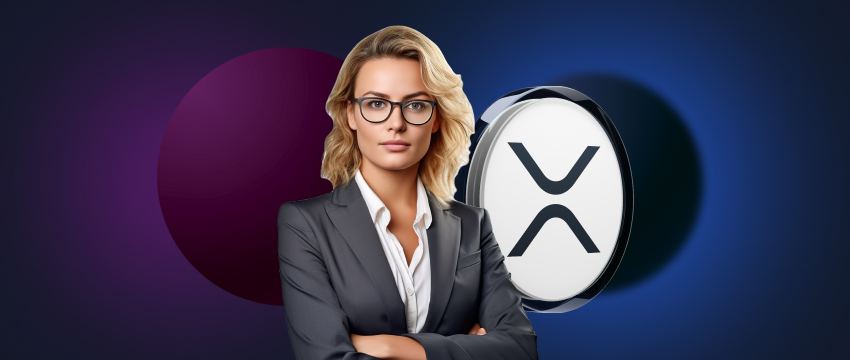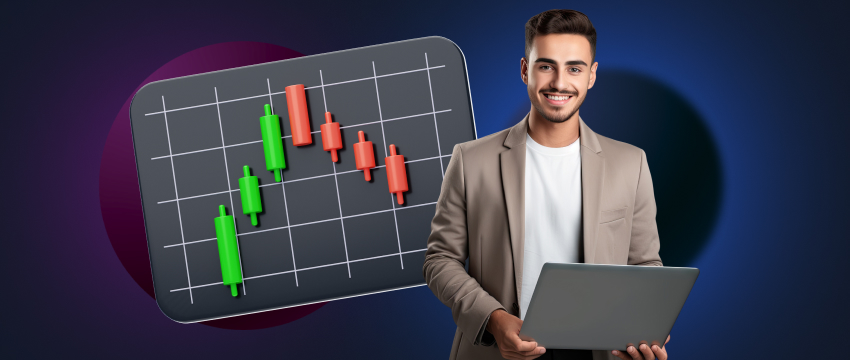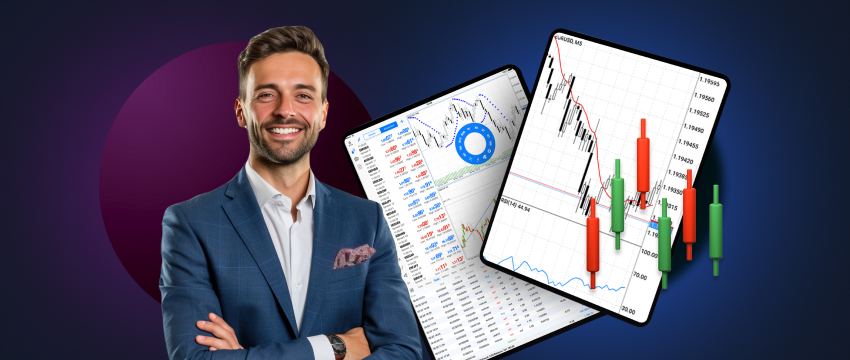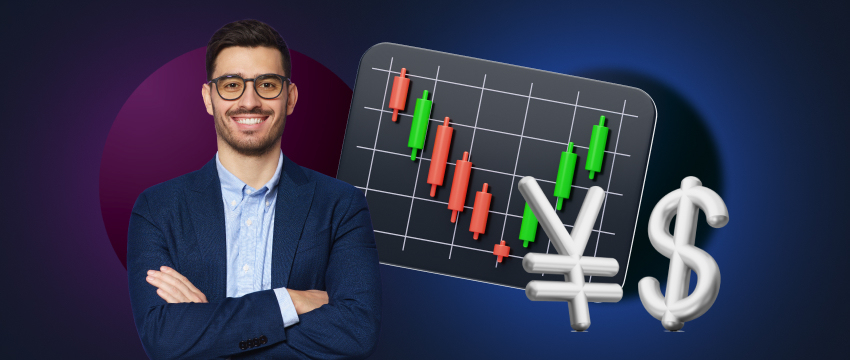Crypto trading refers to the buying and selling of cryptocurrencies via an exchange. In the context of CFDs, it involves speculating on the price movements of cryptocurrencies via a CFD trading account.
In the case of CFD trading, the crypto trader does not own the underlying asset, such as the cryptocurrency itself. Instead, they engage in speculation about its price movements.
Specifically, they predict whether the value of the cryptocurrency will rise or fall. This approach allows traders to profit from price changes without holding the actual coin.
Should the speculation be that its value will rise, the crypto trader will likely go long. Adversely, a crypto trader may go short if they believe the value of the cryptocurrency will fall.
Adversely, when purchasing a cryptocurrency on an exchange, the crypto trader is buying the coin itself. To facilitate the transaction, the trader must create an exchange account.
The trader must pay the full value of the coin. After making the payment, they store the coin in a digital wallet. This wallet securely holds the coin until the trader decides to sell it. At that point, the trader can access their digital wallet and proceed with the transaction.
Cryptocurrency market
The cryptocurrency market functions as a decentralised network for digital currencies. In other words, it operates on peer-to-peer validation rather than relying on a central authority.
When cryptocurrencies are traded, the transactions are verified and recorded on the blockchain. The blockchain is a distributed digital ledger that ensures transparency and security. This verification process, called mining, requires solving complex mathematical problems to validate transactions.
The value of cryptocurrencies is driven primarily by supply and demand. There are however other factors that may impact prices, be this market sentiment (how much media coverage a particular coin is receiving) or market capitalisation (the value of all existing coins and perception thereof). Broader factors may also cause price fluctuations such as regulatory updates and security breaches.

Cryptocurrency CFDs trading
As mentioned earlier, cryptocurrency CFDs allow traders to speculate on the price movements of specific coins. With this approach, traders do not need to physically own the underlying digital asset. Instead, they can focus solely on predicting whether the price will rise or fall.
The crypto trader can take a long position if they foresee the cryptocurrency’s value rising or go short if they expect it to fall.
CFDs are also highly leveraged financial derivatives meaning the trader is only required to provide a small initial deposit to control a larger position. However, the level of profit or loss is based on the total value of that position.
As a result, not only profits but also losses are amplified. This makes cryptocurrency CFD trading incredibly high-risk, with a critical need for risk management measures to safeguard your funds.
Crypto Mining for trader
Cryptocurrency mining is the process of verifying transactions and adding new blocks to the blockchain.
Mining computers, or nodes, select unconfirmed transactions and ensure that the sender has sufficient funds by comparing transaction details with the blockchain’s history. It also confirms the sender’s authorisation through their private key.
Once validated, these transactions are compiled into a new block, and the mining computers attempt to solve a complex cryptographic puzzle to create a link to the previous block.
When the puzzle is solved, the block is added to the blockchain, and the update is broadcast across the network.
How leverage can impact your success as a crypto trader
Leverage is essentially borrowed funds. In other words, a trader borrows funds from a broker to take larger positions than their current account balance would otherwise allow.
While leverage can amplify gains, it also increases the risk of exponential losses, which can even exceed your margin on a single trade. Knowing how to manage this risk is incredibly important and there are many ways to achieve this:
Stop-loss order:
- Automatically closes your position at a predefined level. For example, if you purchase a bitcoin CFD at $32k, you can set a stop loss at $29k to limit your loss to $3k if the price falls.
Take profit order:
- Helps to lock in profits when the market moves in your favour. So, you could set a take profit order at $32k if you purchase Bitcoin at $29k to secure a profit of $3k if the market rises.
Position sizing:
- This refers to the sum of money you invest in a single position. Most traders typically set this at 1-2% of your total capital. In this way, you have somewhat better control of how much of your money is at risk of loss.
Asset diversification:
- In the context of cryptocurrency, a trader may choose to trade different coins rather than banking on the success of one. So, rather than focusing on just Bitcoin for instance, a trader may also trade Tether, Ethereum, Solana, or other coins.
Stay informed about crypto trading:
- Cryptocurrencies are highly volatile, with values rising and falling all the time. Staying informed of any new developments is key to better managing your trades, or to be able to react more quickly to market moving events.
Stick to a trading plan:
- As with any other forms of trading, keeping to a plan that defines your goals, strategy, budget, and risk tolerance will likely keep you more disciplined and focused. The same stands true for when trading cryptocurrency CFDs.
Trading psychology:
- Taking into account the high volatility of cryptocurrency trading, building strong mental resilience to cope with this volatility is critical.
- Emotive trading, i.e., trading decisions driven by feelings like stress, anxiety, greed, or fear, are likely to result in adverse trading outcomes.
- By learning how to better manage your feelings and instead trade on the basis of objective data, you’ll possibly increase your potential for seeing more positive results.

Crypto and trading-related education
Regardless of the asset you are trading, knowing as much as you can about the relevant markets is crucial for increasing your potential for success.
There are many ways to learn about cryptocurrency trading, be this through blogs, articles, physical books, e-books, videos, podcasts, videos, webinars and trading courses. Cryptocurrency brokers may also offer learning tools like Live TV, Economic Calendars, and Trading Calculators.
In addition to the aforesaid, crypto traders may also consider joining online communities to engage with their peers worldwide. These forums offer great opportunities to share expertise, knowledge, tips, ideas, and concepts.
Register for a demo trading account
A great way to become a more skilled trader is to sign up for a demo trading account. Whilst not a conventional learning resource, a demo account offers traders access to a virtual trading environment in which to enter and exit trades and gauge outcomes. They can learn more about technical and fundamental analysis to make more informed trading decisions too.
A demo trading account also enables you to test all types of trading strategies, regardless of how complex, using virtual funds, giving you the peace of mind that your own money is protected.
风险提示: Crypto CFDs are an extremely high-risk, speculative investment and you may lose all your invested capital. Before trading, you need to ensure you fully understand the risks involved taking into consideration your level of experience and investment objectives. Seek independent advice, if necessary.
免责声明: This material is for general informational and educational purposes only and should not be considered investment advice or an investment recommendation. T4Trade is not responsible for any data provided by third parties referenced or hyperlinked in this communication.






